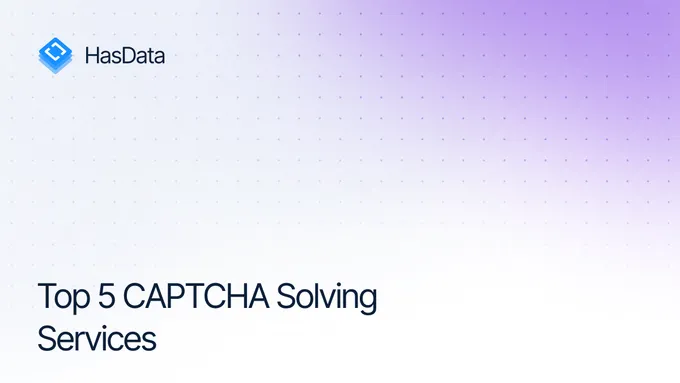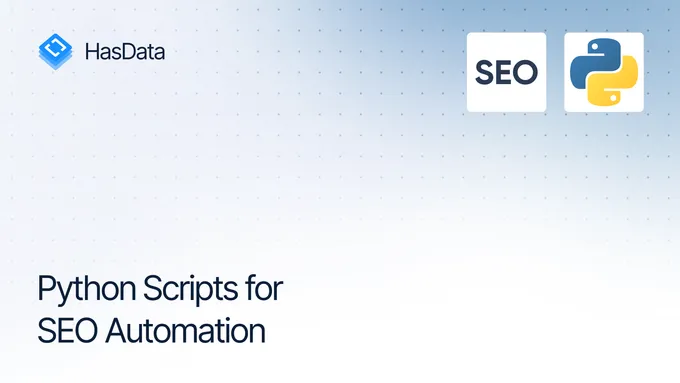Google SERP APIs Ranked by Speed, Cost, and Pain Points (2026 Update)
Most SERP APIs promise simplicity: “Send a query, get results.” But what you get in return - slow responses, broken HTML, awkward JSON - can vary wildly.
We put 10 of them through the same controlled test: same query, same time window, repeated runs. We measured latency across percentiles, pricing impact at scale, and developer experience (like nested fields, retries, and output sanity).
No one API did it all. But some made scraping feel almost boring - and that’s a good thing.

Methodology
- Test setup: identical query (“Coffee”), US geolocation, desktop UA
- Timing: same UTC time window, 1000 requests per API
- Metrics captured:
- P50, P75, P95 latency
- Response consistency (failures, malformed JSON)
- Cost per 1,000 requests
- Output format quality (e.g., clean JSON structure, duplication, parsing overhead)
- Retry behavior and rate limiting
- Ease of use: authentication, docs, sandboxing, SDKs
TL;DR Summary Table
The best Google SERP APIs in 2026 include HasData for real-time data with 100% accuracy, DataForSEO for affordability and scalability, and Bright Data for extensive proxy support and customization. These APIs provide structured search results, keyword insights, and SERP tracking across regions and devices.
| API | CPM | P50 | P95 | Notes |
|---|---|---|---|---|
| HasData | $1.22 | 2.3s | 3.0s | Clean JSON, retry-safe, fast, LLM-ready output |
| SerpAPI | $15 | 2.5s | 4.6s | Feature-rich, expensive at scale, polished SDKs |
| Apify | $3.5 | 13,7s | 30.1s | Browser-based scraping, slower |
| ZenSerp | $10 | 3.9s | 11.3s | Organic results sometimes missing or misparsed in JSON |
| BrightData | $1.8 | 2.6s | 4.9s | Responses include base64-encoded images (not LLM-friendly); “Perspectives” block mislabeled as “Related Questions” |
| DataForSeo | $10 | 4.7s | 15.8s | Flat, verbose JSON with mixed content types in a single items[] array (e.g., organic, images); requires manual filtering |
| ScrapingBee | $8.2 | 20.9s | 41.6s | Basic JSON output; limited or no rich snippet support |
| SerpWow | $12 | 11.1s | 24.7s | Basic JSON output; limited or no rich snippet support |
| Oxylabs | $2.8 | 5.5s | 15.6s | Base64 images (not LLM-friendly); good coverage of rich snippets; no raw HTML included |
| ScraperApi | $12.25 | 4.1s | 20.1s | Basic JSON output; limited or no rich snippet support |
Note: CPM refers to the cost per 1,000 requests.
HasData

HasData’s SERP API uses simple key-based authentication. The documentation is clean and practical, with an interactive API Playground that lets you preview responses and auto-generate code in multiple languages. You can set search parameters like country, device type, pagination, or search type (web, images, maps, news) directly from the UI. It also integrates with Zapier and Make.com, which is useful for lightweight automation without writing code.
In our test, HasData delivered the fastest and most consistent response times. Median latency was 2.3 seconds, with 95th percentile at 3.0 seconds. There were zero failures or retries needed across all runs.
JSON responses are clean and flat. Fields are properly structured, no base64 images, and no nested garbage. It returns screenshots alongside data, which is useful for visual validation or building tools like SERP history viewers. All output is LLM-friendly out of the box.
Retry logic is handled internally and invisible to the user. Official SDKs are available for Python and Node.js, but the API is simple enough to use directly with any HTTP client. Responses are consistent and easy to parse.
Under load, HasData held up well. At 1K, 10K, and 100K requests, response times remained stable and no rate-limiting was observed. The credit-based pricing makes scaling predictable.
Best suited for developers building real-time apps, monitoring dashboards, or search analytics pipelines. If you want to ingest SERP data directly into an LLM workflow without post-cleaning, this is one of the few APIs that requires almost no cleanup.
SerpAPI
.CqTsh4B0_21xD1i.webp)
SerpAPI offers a polished developer experience. Authentication is handled via API key, and the website includes a Playground that lets you configure requests and copy generated code in multiple languages. The interface is intuitive, and the documentation is detailed and beginner-friendly.
The API supports a wide range of SERP features - ads, featured snippets, maps, shopping results, videos, and more - all parsed cleanly into structured JSON. It’s one of the most feature-complete APIs available, and the output is well-organized, with minimal need for post-processing.
In testing, the median latency was 2.5 seconds and P95 was 4.6 seconds. Performance was consistent, with no failures or malformed responses. SDKs are available for several languages, including Python, Node.js, Ruby, and Go, making it easy to integrate across environments.
Retry logic is transparent and reliable. The service handles anti-bot measures like captchas and IP blocks without exposing these issues to the user, which is useful for production scraping pipelines.
The main drawback is cost. The cheapest plan starts at $75/month, translating to about $15 per 1,000 requests - significantly higher than competitors. This may not be viable for projects that require large volumes of data or real-time use at scale.
Best suited for teams that need rich SERP data across multiple verticals and don’t mind paying for convenience. It’s a solid choice if you prioritize structured output, full feature coverage, and SDK support.
Apify
.BlzB3pHz_Zgof5d.webp)
Apify offers a Google SERP API as part of its broader scraping platform. The service relies on browser-based scraping under the hood, which contributes to flexibility but also introduces latency. In our test, it was the slowest by a wide margin, with a median latency of 13.7 seconds and a P95 of 30.1 seconds.
Authentication is straightforward via token, but most usage examples assume you’ll use Apify’s SDK. Only Node.js and Python are covered officially, and the examples lean heavily on their platform-specific libraries. Using the raw HTTP API without their tooling requires extra effort and lacks proper documentation support.
On the upside, Apify allows users to configure and schedule SERP scraping jobs through their dashboard. This is convenient for recurring batch jobs that don’t require real-time processing.
However, for developers who want to directly integrate SERP extraction into their own pipeline, the lack of raw API examples and the reliance on platform-specific runtimes can be a roadblock. It’s also not ideal for real-time use due to high response times.
Best suited for batch scraping workflows where runtime isn’t critical and where users are comfortable operating inside Apify’s ecosystem.
Zenserp
.jxtyu7bf_217UD5.webp)
Zenserp provides APIs for multiple search engines, including Google. Setup is simple with API key authentication, and the service includes a Playground to configure requests and preview the output. Code snippets can be generated in several languages, but we noticed occasional syntax issues in the generated examples.
The response format is clean and relatively easy to work with, though it lacks the depth of richer APIs like HasData or SerpAPI. During testing, some organic search results were either missing or not parsed correctly in the JSON, which makes the output unreliable for use cases that depend on complete SERP coverage.
One notable security concern: the API returns your own API key in the response payload. This poses a risk, especially if you’re using the API in a shared environment or logging full responses. An accidental leak could allow someone to exhaust your quota.
Performance was reasonable for a mid-tier provider. Median latency was 3.9 seconds, with a 95th percentile at 11.3 seconds. No failures occurred during the test, but the parsing inconsistencies and key exposure are concerning.\
Zenserp is a workable option for light or experimental use, especially if you’re prioritizing simplicity and don’t need deep SERP feature support. It’s less suitable for production environments that require strong security practices and complete result fidelity.
Brightdata
.BLNb1TDu_YcHMK.webp)
BrightData is best known as a proxy network but also provides a Google SERP API. To use it, you must create an account and set up a dedicated “zone” for the Google Search API. Configuration happens in the dashboard, where you can also test requests using their Playground.
While you do get a JSON response through the Playground, the generated code examples are misleading - they show how to fetch raw HTML from Google using BrightData’s proxies rather than using the structured SERP API. This creates confusion, especially for users expecting a plug-and-play JSON output.
That said, BrightData does offer a parsing endpoint for structured output, but it’s a separate step and not well-documented. Without using that endpoint, you’re left with HTML content that requires manual parsing. In our tests, JSON responses included base64-encoded images, which are not ideal for LLMs or analytics workflows. Some SERP features, like the “Perspectives” block, were mislabeled (e.g., returned as “Related Questions”).
Latency was solid - P50 at 2.6 seconds and P95 at 4.9 seconds - and no response failures were recorded. However, the setup process is heavier compared to direct API competitors, and there’s more room for human error.
BrightData is a good fit if you’re already using their proxy infrastructure and want to extend it with search scraping. Otherwise, the indirection and inconsistencies in output make it less ideal for developers looking for a ready-to-integrate SERP API.
DataForSEO
.CxRS343V_anN7w.webp)
DataForSEO offers a broad suite of APIs aimed at SEO automation, including a Google SERP API. Unlike most competitors, registration isn’t self-serve for everyone - only companies can sign up through the site directly. Individuals or freelancers need to manually contact support, explain their use case, and wait for credentials to be issued via email.
Authentication is handled via a combination of login and password, not a simple API key. Once configured, the API is stable and well-documented, but slightly more complex to integrate due to its non-standard auth flow and request format.
The response structure is flat and verbose, with all result types bundled into a single items[] array. You’ll need to filter for type: “organic”, type: “images”, and so on, depending on what you’re extracting. This makes processing slower and error-prone, especially at scale.
In testing, the P50 latency was 4.7 seconds, with a P95 of 15.8 seconds. No outright failures, but slower than most direct competitors. No rich snippets were missing, but parsing overhead is high due to the flat structure.
DataForSEO is better suited for batch analytics jobs where you’re comfortable filtering raw data and don’t need real-time speed. It’s a viable option for internal tools or dashboards.
Oxylabs
%20(1).BPFxiSJy_26spqF.webp)
Oxylabs offers a Google SERP API as part of its larger suite of data extraction tools. You can test requests in the API Playground, and integration into your own application is straightforward once credentials are set up.
The API returns structured JSON, and support for rich SERP features like featured snippets and ads is solid. However, raw HTML is not included, and image data is returned as base64, which makes it less suitable for workflows involving LLMs.
In our tests, the P50 latency was 5.5 seconds, with a P95 of 15.6 seconds. Parsing was accurate and stable across runs, with no critical data missing. Response formatting was consistent, but the presence of encoded assets increased payload size and post-processing requirements.
Oxylabs is a decent option for teams already using its residential proxy infrastructure or looking for rich snippet coverage. Just be prepared for slightly higher integration overhead compared to APIs that use token-based auth and return raw or cleaner payloads.
ScrapingBee, SerpWow, ScraperAPI

These three services offer basic Google SERP APIs with straightforward setup - all support standard API key authentication and provide quick-start examples. Their documentation is sufficient for basic use, and integration into simple projects is easy.
However, all three returned underwhelming results in testing. JSON responses are minimal and often lack important SERP features like featured snippets, ads, or extended metadata. The structure is generally shallow, and in some cases, raw HTML or irrelevant markup appears inside the JSON payload. These make them ill-suited for anything beyond very basic scraping.
Performance also varied widely. ScrapingBee was the slowest of the entire group, with a median latency of 20.9 seconds and a P95 of 41.6 seconds. SerpWow and ScraperAPI fared slightly better, with P50s of 11.1 and 4.1 seconds respectively, but both showed high P95 times and occasional instability under load.
None of the services support LLM-friendly output or deeper SERP coverage. Rich snippets were either missing or partially parsed. For real-time applications, analytics workflows, or structured ingestion, they require too much post-processing to be practical.
These APIs might be suitable for simple prototyping or one-off tasks where cost is the main concern and precision isn’t critical. But for production-grade use, more robust alternatives exist.
Key Takeaways
Fastest and cleanest output: HasData - best latency, LLM-friendly JSON, minimal post-processing
Most feature-complete: SerpAPI - handles rich SERP elements, but expensive at scale
High integration overhead: BrightData, DataForSEO and Oxylabs - stable, but require extra work for auth or parsing
Final Thoughts
If you need fast, structured SERP data that just works, HasData is the most efficient option.
SerpAPI is solid if you need every SERP feature and have the budget for it.
The rest come down to trade-offs - latency, completeness, setup complexity, or cost.
Pick based on your use case. For real-time apps or LLM ingestion, clean JSON and low latency matter more than screenshot support or raw HTML.
For batch analytics, speed is less critical, so both browser-based and non-browser APIs can work - just be prepared to handle format inconsistencies or higher response sizes depending on the provider.



